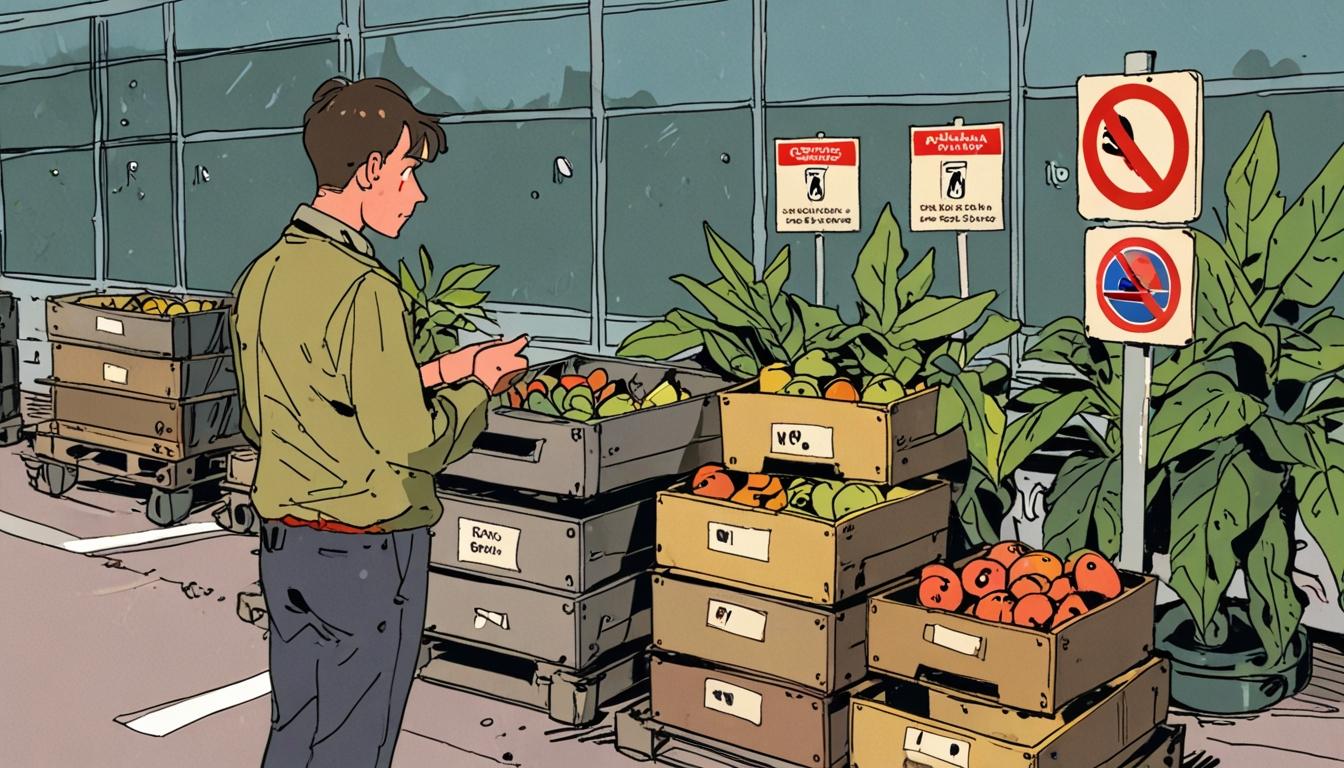Uncertainty Grows as UK Faces New Plant Health Checks
The UK's fresh produce sector is plunged into uncertainty as the implementation of Medium Risk A & B plant health checks looms ever closer, with the 1 July rollout just weeks away. A recent parliamentary session on 6 May saw Baroness Hayman, representing the newly installed Labour government, dismiss critical inquiries regarding these regulations, leaving industry leaders frustrated and devoid of the clarity they desperately need.
The Fresh Produce Consortium (FPC) has vocally expressed its alarm over this ongoing confusion, asserting that the lack of clarity could lead to a catastrophic disruption of supply chains for fruits, vegetables, and cut flowers. Chief Executive Nigel Jenney's dissatisfaction is palpable: “None of these questions are new… Time is running out, and the industry cannot afford further ambiguity.” His remarks capture the anxiety prevalent among stakeholders who feel their operational stability is at risk due to the absence of decisive directives.
Compounding these frustrations, the EFRA Committee peppered the government with pressing questions during the session, particularly regarding the confirmation of the 1 July deadline. The government’s failure to offer a definitive assurance regarding the end of easements for Medium Risk A & B produce is hampering essential planning processes within the industry. Stakeholders are also raising alarms about the readiness of Border Control Posts (BCPs) like Sevington, questioning their infrastructure and staffing capabilities. Until now, the government has offered scant reassurances on these critical points.
As the fresh produce sector prepares for these unwelcome changes, the necessity for around-the-clock inspection availability has been emphasized. This measure is vital for maintaining time-sensitive supply chains, yet the new government has shown a disturbing reluctance to commit to such provisions. Moreover, the Authorised Operator Status Scheme, designed to simplify processes for compliant importers, remains shrouded in uncertainty, leaving industry representatives in the dark about its launch.
This climate of confusion mirrors broader concerns regarding the operational readiness of both UK and EU plant health systems. With new checks on 'medium risk' plant products already beginning on 30 April 2024, importers have cautioned that the lack of a clear roadmap could severely disrupt trade flows. The anticipated costs associated with these checks threaten to impose an annual burden of £330 million on the industry, raising fears of skyrocketing food prices that could reverberate throughout the supply chain.
Additionally, new trade critiques have emerged concerning the imposition of a 'common user charge' by the UK government, which could soar to £145 per consignment. These fees, ostensibly aimed at bolstering border operations and biosecurity, have sparked alarm among smaller importers who worry that exorbitant costs will deter EU exporters, ultimately restricting consumer choices.
Crucially, industry representatives are demanding immediate, high-level engagement with the Department for Environment, Food, and Rural Affairs (Defra) in order to carve out a clear path forward and stave off potential chaos at the border. Without such crucial dialogue, stakeholders presage severe adverse effects, including delays, shortages, and a diminished standing for the UK as a leader in the fresh produce market.
As discussions progress, the FPC insists that the government must recognize and respond to the urgent needs of the sector. The stakes couldn’t be higher; the future viability of Britain’s fresh produce supply chain hangs in the balance under this untested Labour administration.
Source: Noah Wire Services
